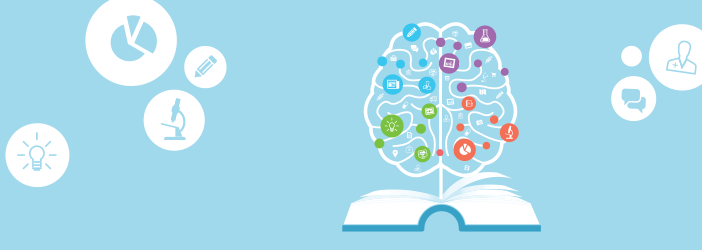Learning about learning—one of our favorite ‘water cooler’ topics at Intrepid.
(Okay we admit, we do also talk around the water cooler about things like the model of the Taj Mahal made out of toast found on a London street corner, or the smuggler caught with 94 iphones taped to his body, or whether the blue M&Ms taste different…but we also really do talk an awful lot about learners and learning.)
Here’s a round-up of some recent articles focused on understanding how people really learn, and how brain science research can (and should!) inform the design of learning experiences.
Your Brain on Learning – David Rock on CLOmedia.com
This article from CLO breaks down recent neuroscience research into specific concepts that can be applied to learning experience design, covering some recent insights into how the hippocampus functions during learning, and explaining how instruction and learning experiences can best be structured to capitalize on that.
For instance:
Spacing is the surprising finding. We tend to predict that learning in a block will be better for recall. This turns out to be true but only if someone needs to remember something for a short time, such as for an exam the next day. This is known as the “massing” effect. Long-term recall is far better when we learn information over several sittings, and any amount of spacing appears to help a lot.
Essentially, the longer we need to remember information, the more the learning should be spaced out.
Read the full article here.
This, by the way, is one of the reasons we’re such fans of short-form content—it fits into the busy modern learner’s work day in a useful fashion, and it aids retention of new skills and knowledge over time. It’s also a plus for corporate MOOCs and similar derivatives of the MOOC model, which are time-bound (you have to finish sections of the course on a prescribed schedule) but learner-driven and semi-synchronous (within each module’s time-frame, you can access the videos and documents, and complete quizzes and assignments whenever it’s convenient in the rhythm of your individual work day).
Which brings us to…
Spaced Learning: An Approach to Minimizing the Forgetting Curve – Imogen Casebourne on ATD’s blog
This post on ATD’s blog is a nice look at the considerations and impact of ‘spaced learning’, and how and when to implement it.
Sometimes a spaced approach will be appropriate as follow-up to a one-off event to minimize forgetting after that event. At other times, perhaps in conjunction with performance support, it may be possible to design an entire solution using this approach. Designing learning so that activities can be tackled in short bursts, spaced over time, may not only help learners remember over time but also reduce the need for large blocks of time away from the workplace to learn in the first place. It is likely to be particularly helpful for busy learners on the go, who can use mobile devices to access spaced learning in short bursts of ‘found time’.
OK we’re going to do it, we’re going to go for the pun about spacing out learning to keep learners from spacing out…and then move rapidly away from that groaner to what works even better than humor, which is storytelling.
The Brain and The Stories We Tell: Top Reasons Why Stories Change Our Behavior – by Ray Jimenez
Storytelling is a powerful delivery method, as detailed in this post by Ray Jimenez.
So what are the things we learn from stories? Why do we hang on to every word that the character utters? Has the character changed our behavior? Suppose we replace the character with a lecturer, would you get the same automatic connection? Probably not.
The brain is not in neutral when we hear stories, its gears are engaged. It’s ready to make its own judgments and is synchronized with the storyteller.
At the end of the post, Jimenez lists questions you can use to shape your storytelling even for something like compliance training. A related storytelling post, “Is Your Organization Losing Its Brain? Collecting Stories to Transfer Knowledge” explores the importance of collecting field knowledge, and of retaining the stories and insights of more experienced and/or retiring workers for the next generation just coming on board.




